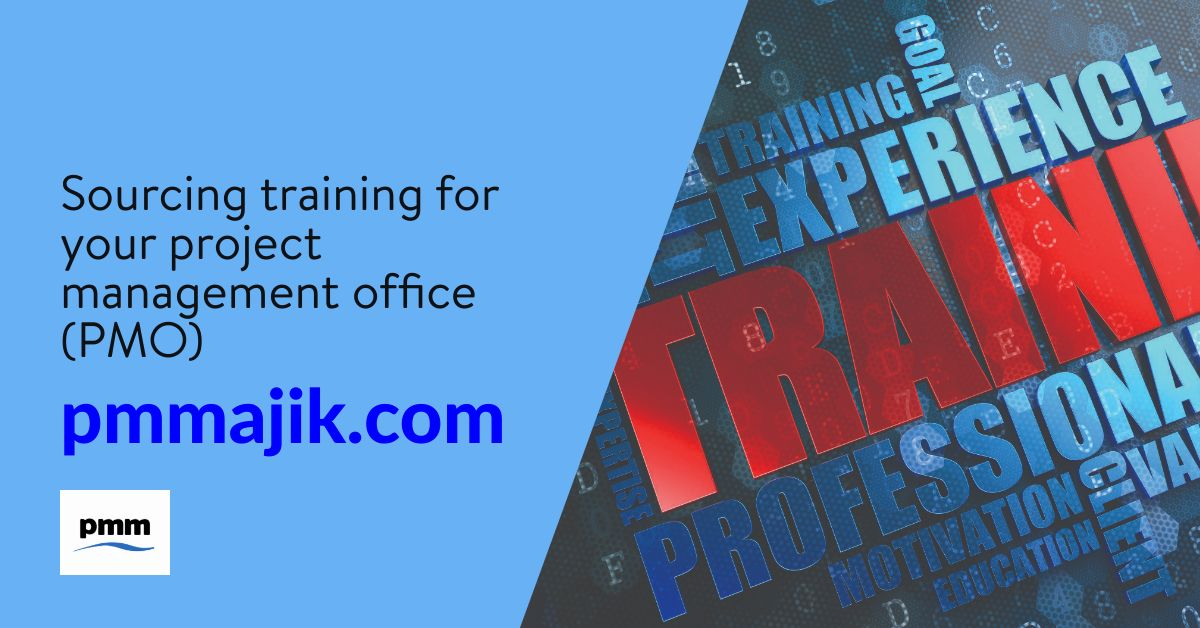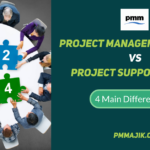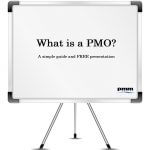As with most services your project management office (PMO) needs, you can choose different ways to deliver the training you need. How do go about sourcing training for your PMO team?
Certain things that require training are PMO specific. Rather than going to your HR department to organise every training course, your office can take on the training of project managers and colleagues where needed.
Finding the right source of the training requires some consideration. There are different ways to provide training through your PMO and we’re going to look at the three main ones:
- Offering training in-house
- Outsourcing your training
- Using external education services
And will cover the plus and minus points of each.
When should I offer in-house training through my PMO?
In-house training is courses and education that area offered directly through your PMO. The course material is owned, developed, and delivered by your office.
It can be training delivered online, in the classroom, or on the job. Hosting your training materials on an LMS will make the job of offering in-house or internal training much easier in the long run.
Use in-house training when you have a lot of expertise in the area. For example, training your project managers how a new KPI Is going to be implemented would ideally be done in-house since your PMO designed it.
This may also be true for technical training in some instances, as well as training project management methodologies.
Pros and cons of in-house training for your PMO
Pros
- Complete control over the course content
- Training can be stored for the future and easily adapted
- Can be tweaked for specific needs of colleagues or business
- Low cost-per-delegate
Cons
- Need to have staff trained to deliver courses or subject matter experts
- Additional admin for PMO including booking rooms
- Courses need constant monitoring and updating
When is it a good idea to outsource training for my PMO?
Outsourcing is known to reduce costs and allows a business to focus on its core task. By bringing in an external company to offer training to your PMO team, you can possibly expect to reduce the investment you make in education, although it’s not always the case.
Delivery methods of outsourced training can be the same as with in-house. You can pay a company to give your project staff access to their online courses or bring in trainers to your office to run classroom training.
Outsourced training is great for generic tasks. If your resource planning software is getting an update, it can be worthwhile bringing in experts from outside to do the training.
Pros and cons of outsourcing training for your PMO
Pros
- Access to subject matter experts and professional trainers
- Ideal when you only need to offer intermittent training, like at the beginning of a project
- Cost-efficient way to deliver skills
- Information will be up to date and relevant to the market
Cons
- Content won’t be specific to your projects or sector
- Schedule can be constrained by what outsource company can offer
- Missed opportunity to develop training skills internally
How can incorporate external education opportunities into my PMO?
Sometimes, you need to upskill your team with more academic or functional skills. When you run software or engineering projects particularly, it may be more efficient to embed skills in your current team rather than trying to hire them in.
You can use a range of different education providers to train your project managers or team members. Consider using:
- Evening classes
- Distance learning through the Open University
- Full-time, on-campus classes
- Continuous professional development organisations
When deciding to use an external education provider, be sure to check the accreditation of the course and that it will provide the skills you need in your team.
Pros and cons of using external education providers for your PMO
Pros
- The people being trained will get highly regarded technical skills
- Your team will feel valued that you’re making an investment in them
- You can be sure that your staff have been successful with external assessment
- Training can be targeted to future-proof your business
Cons
- Usually very costly
- Sometimes requires team member to be away from work for extended periods
- Classes run on someone else’s schedule
The take home
You need to make sure that you’re keeping your PMO fully skilled. This includes skills in working on projects and knowing how Scrum or Kanban work, as well as having software, coding, and engineering skills for future projects. There are different ways of sourcing training for your PMO. The most effective sourcing plan will include a mix of all of them depending on the needs of your office.






